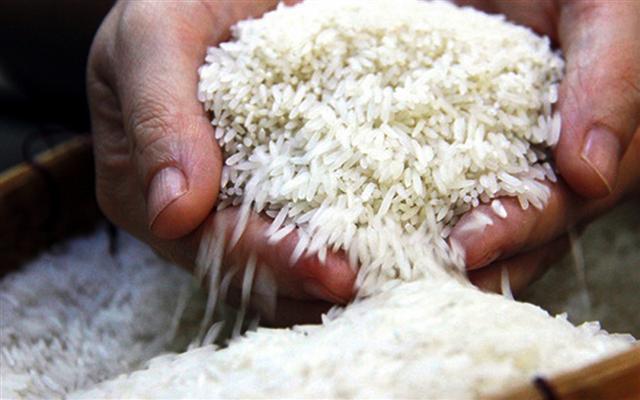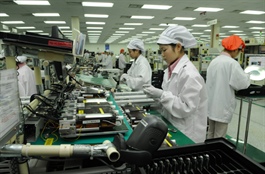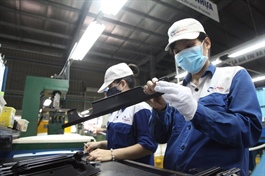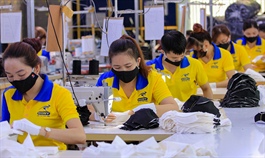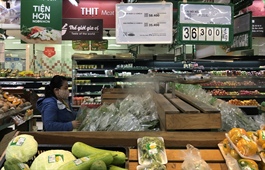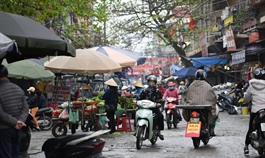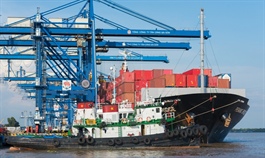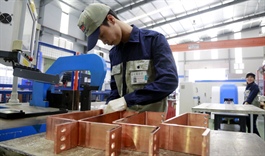Free trade agreements: Expectations and challenges
Free trade agreements: Expectations and challenges
The year 2020 marked a major step in Vietnam’s international economic integration, as a series of new generation free trade agreements (FTAs) were signed and went into force. The agreements will constitute a driving force for Vietnam’s post-pandemic economic recovery and future development.
|
A year of free trade agreements
Vietnam officially began its integration process in 1995 when it joined the Association of Southeast Asian Nations (ASEAN). In the ensuing years, it has reached 13 FTAs, and four additional ones are either due to be signed or take effect soon, or under negotiation. In 2020 alone, Vietnam’s landmark trade agreement with the European Union (EVFTA) took effect, as did the Regional Comprehensive Economic Partnership (RCEP) Agreement signed after eight years of negotiations and a UK-Vietnam FTA (UKVFTA).
Minister of Industry and Trade Tran Tuan Anh noted that with Vietnam’s consistent international economic integration policy, Vietnam became the first developing country in the Asia-Pacific region to reach an FTA with the EU; and was also among the first ASEAN members (with Singapore) to ratify the Comprehensive and Progressive Agreement for Trans-Pacific Partnership (CPTPP).
“Together with the CPTPP, the RCEP has affirmed Vietnam’s voice in shaping new cooperation mechanisms, enhancing the country’s position,” the minister said.
The FTAs have opened up unprecedented, vast import and export markets for Vietnam. For example, just four months after the EVFTA went into effect on August 1, 2020, Vietnam’s exports and imports to the EU increased by four percent and over 11 percent, respectively. The Vietnamese products that have taken advantage of the agreement include seafood, plastic products and shoes. Nguyen Hoai Nam, Deputy Secretary General of the Vietnam Association of Seafood Exporters and Producers (VASEP), said that in the first seven months of 2020, seafood export decreased continuously by 17 to 26 percent. However, by August, seafood exports to the EU started to increase, first by one percent, September by 19 percent, October by 20 percent, November by 30 percent, and December is expected to total a 15 percent increase compared to the same period in 2019.
According to a study conducted by the World Bank, the RCEP can help Vietnam’s gross domestic product (GDP) increase by 0.4 percent by 2030. Meanwhile, the UKVFTA signed in December 2020 includes open market commitments equivalent to the EVFTA plus additional quotas for high competitive goods such as agricultural and fisheries products, which will provide more opportunities for Vietnamese businesses to promote exports to the UK.
Challenges
Nguyen Thi Thanh, Head of the Viet-EU International Business Association - a branch of the Vietnam Private Business Association, said the FTAs provide an opportunity for Vietnamese enterprises to reach out to the world.
With signs of recovery at the end of 2020, Vietnam’s leather and footwear industry is optimistic that exports will regain growth momentum in the long term, especially with the boost of the existing and future FTAs. The Secretary General of the Vietnam Leather, Footwear and Handbag Association Phan Thi Thanh Xuan said that apart from the United States, the UK is a major importer of Vietnam’s footwear products and room for export growth to that market is expected to extend for more than 20 years.
However, apart from opportunities, the FTAs present domestic enterprises with huge challenges. Phan Thi Thanh Xuan said for the leather and footwear industry with exports accounting for 90 percent of production output, the FTAs offer great opportunities due to the removal of tariff barriers, but also challenges due to extremely strict non-tariff barriers under FTA commitments, including labor standards and environmental standards. Export markets will not impose taxes but will sanction violations of commitments. Therefore, in order to benefit from the global economic playing field, domestic enterprises must increase investment in the quality of human resources and production technologies to honor their commitments.
| The implementation of FTAs has helped increase Vietnam’s GDP by more than 300 percent and its trade revenue by 350 percent. |


